What’s a big SUV without a big engine? If it’s a Ford Expedition, it’s the strongest big SUV in its class – with the smallest standard engine.
It’s also the biggest, period – at least, without changing names.
The Expedition comes in two sizes. Full-sized and fuller-sized.
Both of them skinned in Reynold’s Wrap.
Well, aluminum.
There’s nothing else quite like it.
The Expedition is a large SUV that’s based on the popular Ford F150 pickup. It comes standard with the same twin-turbo 3.5 liter V6 that’s optional in the F-150, in strong (375 horsepower) and even stronger (400 horsepower) versions – both versions stronger than the big V8 that’s standard in its main rival, the Chevy Tahoe.
Both versions of the Expedition have three rows of seats and eight passenger capacity but the fuller-sized MAX version, which is similar to the Chevy Suburban – which is a fuller-sized Tahoe with a different name – is about a foot longer overall and has significantly more cargo capacity behind its third row.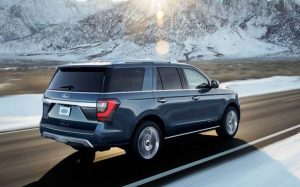
Prices start at $521810 for the standard-length XLT trim with rear-wheel drive. Limited, King Ranch and Platinum trims are available – with either rear-drive or four-wheel-drive with low-range gearing and driver-adjustable terrain settings.
The fuller-sized MAX – which is available in the same series of trims – starts $55,835 and tops out at $80,110 for a Platinum trim with 4WD.
What’s New
The biggest change for 2020 is the addition of the King Ranch trim – formerly an F-150 trim. It dresses up the Expedition similarly, with soft-touch Del Rio leather seats, stitching and badges as well as an adaptive suspension and 22-inch wheel/tire package.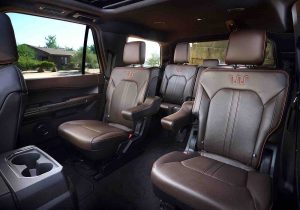
Ford’s “Co-Pilot” suite of driver-assistance tech, including Lane Keep Assist, Pedestrian Detection, Automatic Emergency Braking and auto-dimming high beams, formerly optional, is also now standard in all trims.
This – plus inflation – likely accounts for the slight price uptick from last year – when you could buy an otherwise-the-same XLT for $52,130 to start.
Without “assistance.”
What’s Good
All trims come standard with the strongest engine in the class.
Pulls more than Tahoe – and Suburban.
Aluminum body sheds weight, increases performance.
What’s Not So Good
Driver “assists” aren’t optional. You may not want ’em but you have to pay more for them.
The 400 horsepower version of the turbo’d V6 is only available in the highest-cost Platinum trim.
Aluminum skin (like the F-150’s) is light but more easily damaged and more expensive to repair than steel.
Some big SUVs don’t come standard with a big enough – or strong enough engine. The Expedition comes standard with the latter.
It may not be a V8 – as in rivals like the Tahoe (and Suburban). But the Ford’s 3.5 liter, twin-turbo V6 makes 375 horsepower – significantly more power than the Tahoe’s (and Suburban’s) standard 5.3 liter, 355 hp V8. The Tahoe (and Suburban) both offer a bigger and stronger 420 hp 6.2 liter V8 – but to get it, you must first buy the $62,700 Premier trim and then pay another $3,570 for the option.
The Expedition has an option, too. Platinum trims come standard with a 400 horsepower version of the 3.5 liter V6.
Either way, the Ford is faster – and pulls stronger. The least it can pull is 9,000 lbs. – and the most 9,200 lbs.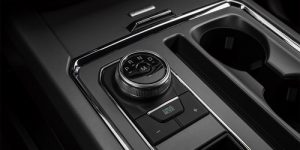
This is more – either way – than the Tahoe’s 8,400-8,600 lb. max.
Something else to consider – as a possibility – is that the 375 hp version of the Expedition’s V6 might be DIY upgradable to the 400 hp version – without buying the Platinum trim. It’s basically the same engine – unlike the Tahoe’s optional 6.2 liter V8, which is a different (physically larger) engine.
The difference between the 375 and 400 hp versions of the Expedition’s V6 might be a matter of adjustment – a bit more boost, for instance. Something you could do without swapping engines.
Either way, the Expedition comes standard with a ten-speed automatic, four more gears than the current Tahoe’s standard six-speed automatic. The Tahoe’s optional 6.2 V8 comes with the same ten-speed automatic that the Ford comes standard with; this transmission was developed jointly – to reduce development costs – and to increase miles-per-gallon.
By adding several overdrive gears.
Eighth, ninth and tenth gear are all overdrive gears. Tent is a deep 0.63 ratio – which cuts engine revs to barely running unless you’re really hauling. With a light right foot, the V6 can keep the Expedition trundling along at 70 at about 1,800 RPM – which accounts for the slight MPG edge the Expedition has over the less powerful Tahoe.
The 2WD XLT rates 17 city, 22 highway – vs. 15 city, 22 highway for the Tahoe with its bigger (and weaker) 5.3 V8.
Something else the Expedition has is range.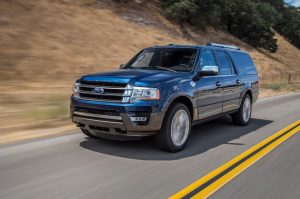
On a full (24 gallon) tank, the standard-size 2WD Expedition can go almost 500 miles before it needs to stop for fuel – which is nearly as far as a Prius hybrid – and a lot farther than any electric car.
Plus, you can get going again in about five minutes – for another 500 miles – a feat no electric a car (or truck) can match or even come close to matching.
Also of note: Both versions of the Expedition’s mighty V6 are regular (87 octane) engines – amazing given the boost. And it raises an interesting question. How much more boost could these engines handle if fed 91 octane or better gas?
On The Road
It may not have a V8, but it feels – and sounds – like it does. In addition to the big-engined power, there is also – somehow – that big-engined sound. A bass note that develops into a cape buffalo bellow as the big bus accelerates.
Which it does more quickly – zero to 60 in 6.5 seconds – than most V8 muscle cars of the ’60s could.
And more easily – as well as more quickly – than the bigger-engined but lower-torque Tahoe does. Its 5.3 liter V8 makes 383 ft.-lbs. of torque – at 4,100 RPM. The Ford’s V6 summons 470 ft.-lbs. at 3,500 and it has the advantage of shorter gearing (first gear in the ten speed is a stump-pulling 4.696 ratio) through its first six gears.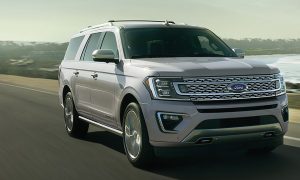
It rides better, too. An amazing – almost magical – achievement given this is still a body-on-frame/real-deal truck-based SUV, not a car-based crossover SUV.
The contrast between this huge SUV – and my little truck (an ’02 Nissan Frontier) was striking. Part of my test loop for trucks and SUVs includes a very rough, very steep (and very narrow) gravel – and mud – backwoods trail with lots of washboards. My truck must tread gingerly – slowly – or the rear axle reverbs like a ’50s doo-wop band only without the pleasantness, because it’s got a solid rear axle and leaf springs (like most muscle cars of the ’60s, by the way).
The Expedition has an independent rear suspension – just like a sport sedan – only with almost ten inches of clearance. Which enables it to barrel up the same craggy road at three times the speed with no reverb . . . unless you’ve got the excellent audio system playing some of it.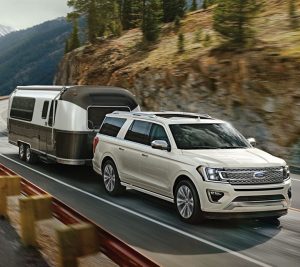
The only thing it doesn’t do better is fit in parking spots – which are sized for cars and car-based crossovers.
But even here, the Ford outmaneuvers its rivals. The MAX version is about three inches shorter bumper-to-bumper than its Suburban equivalent, so you’ve got just a bit more wiggle room – with the same room inside. Both the Ford and the Chevy have nearly identical maximum cargo capacity – 121.5 cubic feet and 121.7 cubic feet, respectively.
Some may not dig the rotary knob control for gear selection – or the push-button selection for ranges, in 4WD-equipped versions. What I didn’t like is that there’s no button to turn off ASS – the engine stop/start system that is being forced down our throats – not by the car companies, but by the government. The car companies foist ASS on us to comply with federal fuel efficiency standards; the idea being that fractional per-vehicle “savings” – achieved via repeatedly shutting off the engine – will up the car company’s Corporate Average Fuel Economy numbers.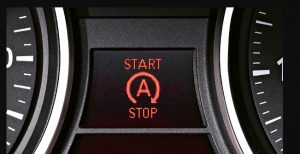
But it costs us annoyance – as well as (probably) shorter battery life.
Anyhow, when ASS first appeared in new cars about five years ago, there was always an obvious button to turn the damnable system off – so your engine wouldn’t. Lately – in the last several 2020 models (various manufacturers, not just Ford) I have tested, it takes more digging – more scrolling – through menus to find the ASS off “button.”
I never did find the Expedition’s. It may not have one.
Same goes for the traction control button. The closest I found was Sport mode, which allows a little rear wheelspin (in 2WD). But if you attempt a burnout, the car’s ECU Oberfuhrer cuts throttle and applies brakes – literally. A screen pops up int he gauge cluster to let you know.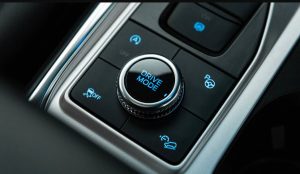
Saaaaaaaaaaaaaaaaaafety!
These nits are unfortunate because otherwise the Expedition is magnificent – and it’s unfortunate because it ought to be up to the driver to, you know, drive. And make decisions for himself about how.
The probably good news is there is likely a quick fix – a defeat – for all these saaaaaaaaaaaaaaaafety (and “efficiency”) “features.”
The only radical thing about the Expedition’s skin is its skin – which is made of aluminum rather than steel. Otherwise, it is conventionally handsome, with styling adjustments up to you according to which trim/option package you select – from family-hauler XLT to King Ranch cowboy.
There’s also an FX4 off-road package – similar to the same-named package available with the F-150. It includes 32-inch all-terrain tires, an electronic limited slip rear differential, HD shocks, underbody skid plates and a sand guard for the turbo intercooler – as well as subtle FX4 badges on the quarter panels. It doesn’t look as off-road-stompy as the FX4 F-150, but it’ll tackle the same terrain.
Because it is so big, the Expedition offers adjustment. Limited trims have pedals that can tailored to suit the longer (or shorter) legged. The Platinum trim comes with power folding both rows – second and third.
That third row has a pretty astounding 36.1 inches of legroom, too. That is more legroom than in the second row of many current mid-sized family cars. You really can carry eight people in this kahuna. Not just five plus some torsos.
The center console storage cubby in between the driver and front seat passenger could almost seat one more. Open it and drop your kid in there. He really might fit. Several laptops will, easily. Plus your hoodie and a chicken sandwich from Popeye’s (delicious!).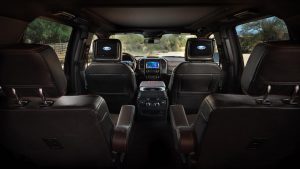
All trims come standard with more ground clearance – 9.7 inches – than others in the class, including the Tahoe (which has 7.9 inches of clearance).
Stepside running boards (FX4) and grab handles make boarding easier.
The Platinum is a Lincoln in all but name – and price. It’s still expensive – but not $100k expensive. It includes all the tiered options in the other trims (except for the King Ranch’s unique seats and trim) plus the 400 hp version of the V6, power-folding running boards, leather-wrapped everything, 22 inch wheels, a larger/nicer touchscreen and an adaptive suspension system.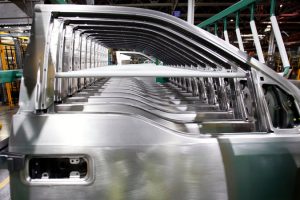
In one way, it’s more than a Lincoln. The Expedition’s tow rating is higher than the Navigator’s – even though the two SUVs are basically the same SUVs sold under different labels and even though the Lincoln’s version of the 3.5 V6 makes 450 horsepower.
The Rest
There are two potential downsides to the Expedition’s two upsides – its mighty twin-turbo V6 and its lightweight aluminum bodywork. The V6 is a more complex engine than a big V8 and it is a pressurized engine – twice. How will it hold up to that over the next 15 years – vs. a simpler, easier-going V8?
The other potential downside is the aluminum skin. It shaves a lot of weight – which is one reason why the Ford is so fast. But it is easier to bend aluminum and it cost more to fix it. Even if you don’t bend it, the prospect that you might will possibly mean paying more to cover it against potential loss than you’d pay to insure a more conventionally steel-bodied SUV.
The Bottom Line
If you don’t bump it, it’s hard to beat it!
…
Got a question about cars, Libertarian politics – or anything else? Click on the “ask Eric” link and send ’em in!
If you like what you’ve found here please consider supporting EPautos.
We depend on you to keep the wheels turning!
Our donate button is here.
If you prefer not to use PayPal, our mailing address is:
EPautos
721 Hummingbird Lane SE
Copper Hill, VA 24079
PS: Get an EPautos magnet or sticker or coaster in return for a $20 or more one-time donation or a $10 or more monthly recurring donation. (Please be sure to tell us you want a magnet or sticker or coaster – and also, provide an address, so we know where to mail the thing!)
My latest eBook is also available for your favorite price – free! Click here. If that fails, email me at [email protected] and I will send you a copy directly!


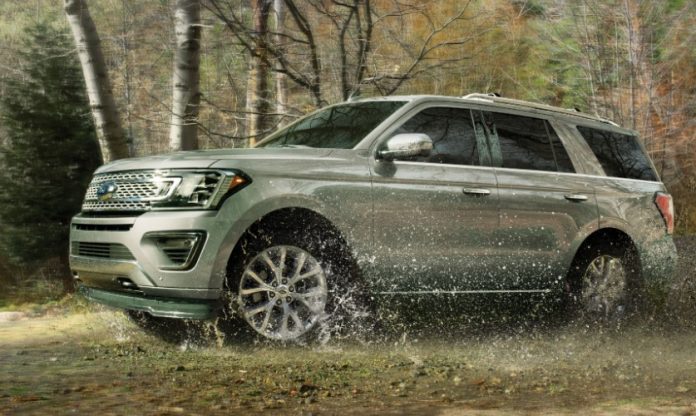


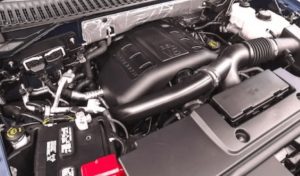

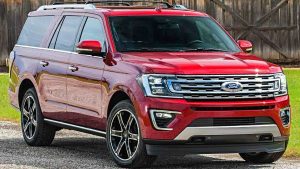








You didn’t know it, but you have a photo of the ASS disable button in your review. It’s the button forward and to the left of the Drive Mode selector knob labeled “A” with a circle and arrow around it.
Unfortunately, this only disables it until you shut the engine off. You have to press it every time to disable ASS when you start the engine back up. It is possible to get a programmer to disable it permanently, and there are devices that plug into the trailer wiring plug near the hitch that fool the truck into thinking a trailer is attached, which automatically disables the ASS every time.
On a separate note, it looks like the more recent twin-turbo 3.5L V6 Ford engines are reasonably reliable as long as you change the oil every 3-5k. They’ve mostly mitigated the issues with carbon fouling of the valves due to the Direct Injection system by adding upstream injectors to the normal direct injectors which occasionally spray a little gas just upstream of the intake valve. Despite this, it seems that nearly every Ford mechanic would personally pick the 5.0 Coyote V8 over the 3.5L V6 for reliability, and they perform very closely on the road despite differences in power on paper.
I’m really hoping they new “Godzilla” 7.3L V8 becomes a runaway success and that it will become at least an available option on higher trims and luxury models.
I see plenty of the new Expeditions on the road. They look really nice, and people seem to really like them. I would rather own one of these. I am not impressed with GM quality these days. They seem to have really gone down hill. I believe the current 3.5L V6 turbo engine in the Fords are on their 2nd or 3rd generation now? I would imagine they have worked out a lot of the issues the 1st generation supposedly had?
There might be a way to physically disable the stop/start function. On the JL Wrangler there are 2 hood switches, one of which is solely dedicated to disabling stop/start when the hood is open. Just have to put up with a dash light if you unplug the switch, but no more start/start.
Eric,
I am on my 3rd Expedition, a ’14, bought new, that last month rolled over 100k. The ’14s were the last V8s. I/we put over 50k on a used ’08 and then 85k on a new ’10 before buying the ’14. This after 3 Suburbans. The Expedition is superior to the GM, and I really like ‘Burbans and Tahoes. Handling is better, ride is better, interior room is better, all mostly due to the Ford’s IRS. Our ’08 and ’14 were/are 4wd and do fine off road in non-rock-crawl situations. The ground clearance is nice there as well as in high water as happens in real life. (For me, the biggest news with this gen Expedition was the FX4 package.) All 3 Expeditions have given little trouble.
I do not have 1st hand info on this, but second and third hand, that the earliest ecoboost F150s tended to grenade when worked hard (West Tx oil field and long distance driving). Like Ford’s home grown truck diesel, I think there were teething pains with the turbo V6. I’ve rented both Max and normal length V6 Expeditions and they are quicker than our V8. I attribute some of that to the new(er) transmissions. I enjoy renting the new units when away on a trip, but enjoy climbing back into the ’14 when I return. I plan to get at least 300k out of this one, and am keeping my eye out for a second, back-up, low mileage 4×4 ’14. The upcoming GM IRS Tahoe/Burban/Yukon will make an interesting cross shop, but the simpler, older V8 Expedition still is quite appealing.
Keep up the good work!
Scott
I made a comment about just this below, the weak 3.5L turboed timing chains. The chains stretch and the timing gets way off and then they grenade. Reading some of the auto tech blogs, they are working on a 3.5l ecoboost once a week.
Ford’s IRS means that it’s just a gigantic cross-over.
For those that actually live off the pavement and haul stuff that makes it a non-starter. Of course the prices already did that.
Our ranch neighbors drive a Four-Runner because it still has a solid rear axle.
A coworker has a large family (6 kids!) and has an older Expedition. He’s looked at buying a new one (new-new, not new-to-him) but the starting price of $52k before options for what is basically a F-150 station wagon means he’ll continue to drive used.
A fully loaded top trim is over $80k. Over $60k for the smaller Explorer.
It’s insane world we live in that mainstream brands are able to command luxury prices.
For $61k he can get a nearly-loaded Transit 8-passenger van with the 3.5 EcoBoost and AWD. And it’ll have more room in the back for bags and kid’s sports gear. It just won’t be stylish.
Eric – you should ask Ford for one to review.
A friend bought(few years ago)a 30 passenger Dodge van to use as an RV and by the time he was through, he had a great RV with all the amenities and recliners for passenger seats. I was really impressed by the way it worked in the end. He and his wife made it look like home on the inside and it slept 4 people comfortably.
I’m really liking Ford lately. However, no ASS defeat means no buy. my F150 has the 5.0L and has an ASS defeat button. This button can be permanently ‘pressed’ with a paperclip.
And to Ford, I wouldn’t have bought the F150 if I couldn’t defeat the ASS crap.
Hi Chris,
The Expedition likely has a “turn off” button… but it’s probably buried in the touchscreen and I could not find it. This is beginning to leach generally. All ASS-equipped cars used to have a physical turn-off button – usually adjacent to the ignition button. It made it easy to defeat ASS – which is probably why they have done away with it!
If I have to go through menus to turn off ASS, it is a NO buy, period. And I advise my friends as such as well.
Dodge used to do this on sub-’15 models for their sport feature, many menus, every time, except Dodge (and 300, and Grand Cherokee) went the other way, and added dedicated buttons, and on some models they stay on permanently.
My wife’s GC ECO button stays off permanently, not sure if the sport button does or not, but it doesn’t matter cause her car rocks without it (cause it’s final drive ration is better than my 300 which needs the sport button pressed daily). None of our 5.7’s have ASS, even my kids 3.6 doesn’t have ASS. Long live FCA’s current old school offerings…………..
We could give two craps about 2-5 mpg…………….
I should have clarified. I know that ASS helps maybe fractional mpg. What I meant above is we don’t care about 2-5mpg total. I’m OK with a traditional pre-2007’ish v8’s with no E-mechanical devices, etc… to get my pickup from 14 to 17mpg. stupid. Unfortunately, we’re a long way away from going back.
Eric, I seem to recall that some ASS systems will shut off when they detect that a trailer hitch is inserted into the receiver.
Hi Nathan,
They may. But even when these systems “work,” I find them obnoxious in extremis. The constant off-on cycling gnaws at you and – after awhile – really gets on your nerves. Well, mine! And all for what? A literally less than 1 MPG (per car) difference in gas mileage.
I doubt anyone would buy this “feature” if it were optional.
You know… like air bags!
eric, it’s probably hidden in an ASS hole.
Eric,
In the picture of the “drive mode” knob (labeled as 20-mdoe/ when you roll the mouse over it), isn’t that an ASS button on the upper left of the rotary knob?
There are some aftermarket parts that found a wire that detects if the hood is up and it will turn ASS off. It splices in and lets you keep the hood closed but tricks the computer.
“Chevy Suburban – which is a fuller-sized Tahoe with a different name”
No – the Tahoe is a shorter version of the venerable Suburban. Actually, the Tahoe is almost a four door version of the full size Blazer which was last made sometime in the early 1990s.
I remember when the Suburban and the IH Travelall were the only choices for a big truck based wagon.
Dunno: The Chevy 5.3L and 6.2L engines are both OHV designs. Old school. The 5.3 has been around since 2000 model year? Maybe GM is trying to harvest profit $$ by not doing any development. That is starting to be very appealing to me. I’m digging the Silverado 5.3L and also the Nissan Titan 5.6L
Yeah, not too long ago Eric was griping about small turbo engines in pickups, vs old school solid V8s.
Hi Tom,
I’m with you in terms of long-term durability – probably. The V8s are known to be 200,000 mile/20-year engines; the Ford V6 is much to new to know… but we’ll see!
The Nissan VK56 V8 is better than the new V8 Endurance which is unproven yet in the new Titans. The VK56 is DOHC but has known and easily fixable issues, easy to work on too. The Vortecs from early 2000’s to 2014 (last vortec LMG went into the tahoe) are pretty solid pushrod engines. So are the 6.2L. Well of course except for the gay AFM that consumes oil and seizes the lifters but they can be tuned out and removed. The new Ecotecs all have direct inject and DOD on top of AFM. Some last, some don’t. The 2014’s onward all have horrible “Chevy Shake” too, bad transmissions and bad drive shafts.
Most oldsters like me want nothing to do with these “high tech” vehicles where you have to spend time at the console swiping, fiddling and cussing to get the damn thing to do or not to do something. I see these vehicles pull off to the side for no apparent reason but I’ll bet many are fooling with that screen. Then the younger gens who for some unknown insane reason like the screens, the fiddling, but never cuss for fear of offending someone and love the coddling and saaaaafety but cannot afford it. Yet…
Fords Stock at $9 (Market Cap 32 Billion) selling 2.5 million vehicles compared to Tesla at $750 (Market Cap $138 billion) selling selling 368,000 vehicles,,, attest to the sickening demise of the IC auto all due to our loving corpgovs centralized command and control economy and shows the completely out of whack our ‘free market’ is.
Ford and GM were given a tap on the shoulder to stop selling cars, the same way VW had both their legs broken over their “cars”. This is all by design.
Anon, and neither can do what the old Suburban does. You could put a couple large pallets in those. This swept up rear with a high floor board and a swooped down roof sucks utility wise. They can make up all the crap they want about towing but all of us who had Suburbans knew their towing was not matched by anything beside a pickup. I remember a guy who had 2500 Suburbans with 454’s that pulled 43′ trailers to haul race cars. The new ones might have the power, they just don’t have the suspension…..esp. the Ford.
Yeah, there’s some old dealer advertising videos on YT extolling the virtues of the Suburban for contractors, etc. You won’t see that for the new ones. You wouldn’t want to bust the rear seat TV screens … //roll eyes
Anon, consider it was 1935 when the Suburban came onto the scene. It’s been made continuously all over the world ever since. It’s always been a high profit vehicle since it was begun as a utility vehicle.
Back in the old days a caravan of Suburbans would come through every year headed for S. America. They’d be loaded out with roof racks, 4WD, winches and mud grip tires. That was back in the days colleges used to do something worthwhile and Texas Tech was no exception with an outstanding depts. for the study of ancient history and I suppose current history as well.
They made some historic finds and traversed country that had never had a rubber tire on it. Now those were real “utility vehicles”. The old Blue Flame 6’s were pretty much indestructible as were the rest of them. If you needed a/c, roll down all the windows. Of course people were much tougher in the 60’s than now.
These are some nice SUVs for high end suburbia. If your household has two jobs and more than 2 kids, this is the ride for you. Not knocking it, they are nice vehicles. However, reading the reddit for JustrolledintotheShop, a lot of Fords 3.5L ecoboosts are having timing chain issues left and right. Hopefully they fixed the seat heater short issue in the previous series, as my neighbor has one and is in the process of fixing the seat. King Ranch has always had impressive interiors. With ASS, I imagine that ecoboost to explode eventually though…
https://www.change.org/p/ford-motor-company-ford-should-cover-partial-cost-of-3-5l-timing-chain
https://www.reddit.com/r/Justrolledintotheshop/comments/eu105v/thank_you_ford_for_your_flawed_timing_chain_design/
Etc you get the idea. The v8 coyote was a nice engine in comparison.
You even have harped on tinier and tinier engines trying to push larger and larger loads!
Engineering and Science don’t care for government mandates and eventually catch up to you.
Hi Brazos,
Yup; I wish Ford had developed the 302/351 rather than abandoning them in favor of OHC V8s and turbo V6s…
“…if you’re thinking of taking the tribe cross-country…
…this is the automobile you should be using. The Wagonqueen Family Truckster.
You think you hate it now, but wait until you drive it.